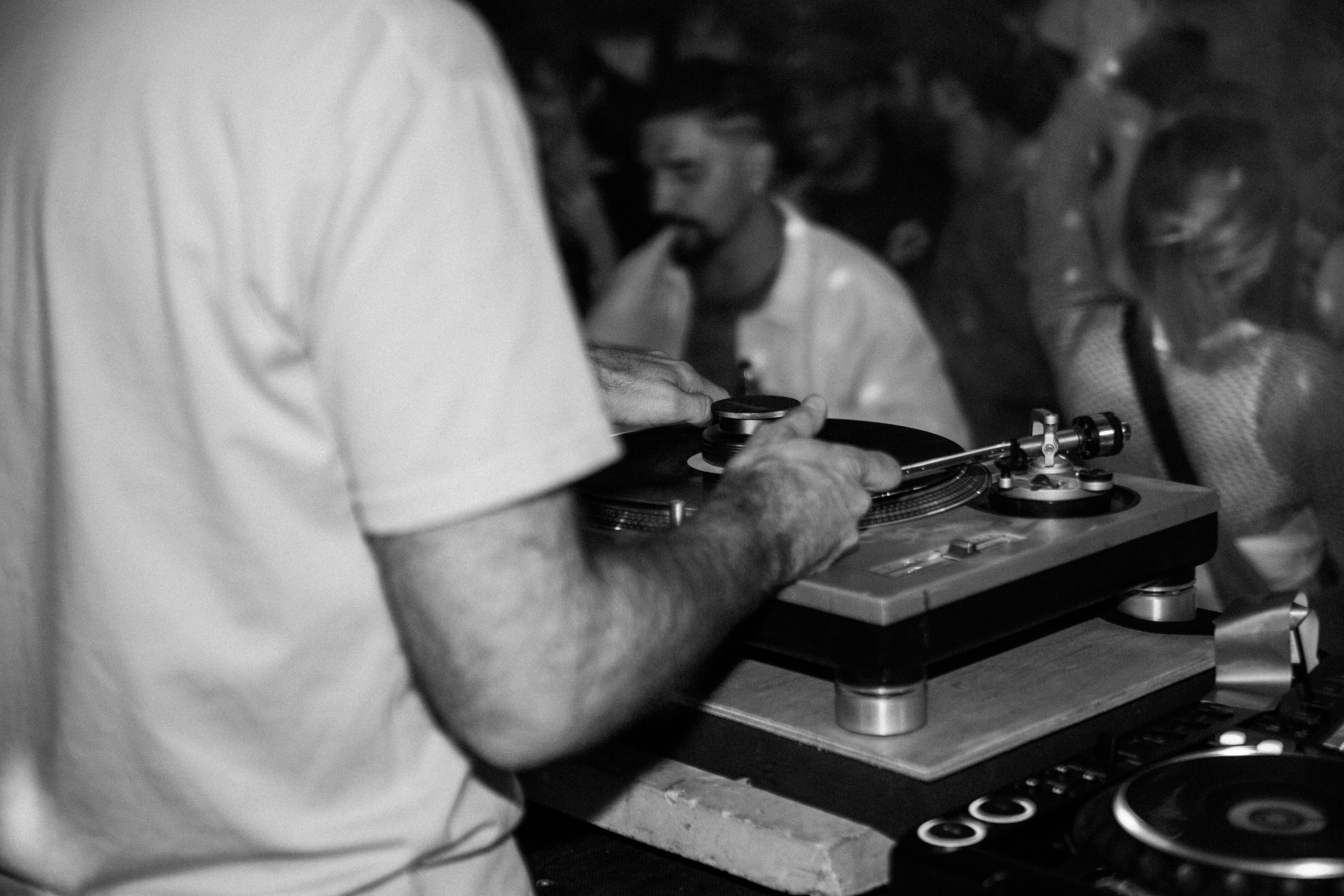The Resurgence of Vinyl
Meg Anderson
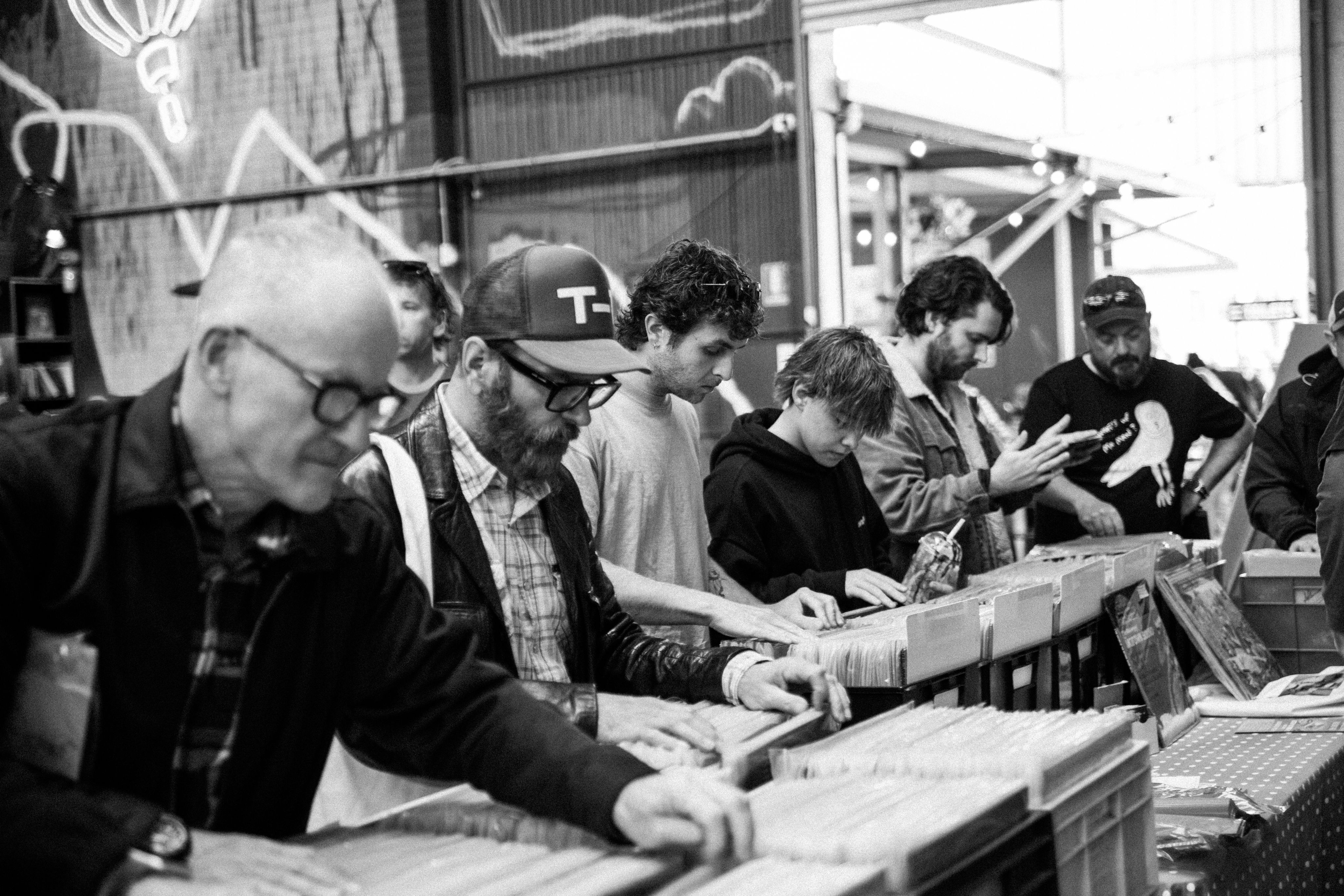
A black record spins on an antique turntable and fills the shop with Spanish female vocals. A man wearing a faded green shirt stands with his back to us, swaying gently to the Spanish opera as he flicks through a collection of The Doors. I smile as I contemplate the contrast between the genre he sways to and the genre he searches through. But I suppose that's the best part about music, there are no rules.
Store owner Mark LaHogue sits on a stool across from me, he wears a colourful button up shirt tucked into dark blue jeans, his foot tapping absent-mindedly along to the record. It’s 9am on a Tuesday and his doors are already open, music spilling out onto the awakening streets of Fremantle, providing a soundtrack to the morning routines carried out by local shop owners, chatty coffee drinkers and conscientious university students.
LaHogue’s store The Record Finder is overflowing with character, authenticity, and you guessed it… records. Initially established by his father in 1966 in New Zealand, the business was moved to Australia in 1985 and LaHogue has been trading in Fremantle ever since.
The record crackles softly as the needle navigates the tiny grooves spiralling towards its centre and I ask LaHogue where his love of music originated. He explains that he grew up surrounded by music, his father had a strong passion for vinyl and LaHogue seems to have inherited his obsession.
“I just love records and the way they bring people together. There’s just this feel about them,” he smiles and shakes his head as he searches for the right words, “it’s hard to explain really… but it’s a very good feeling.”
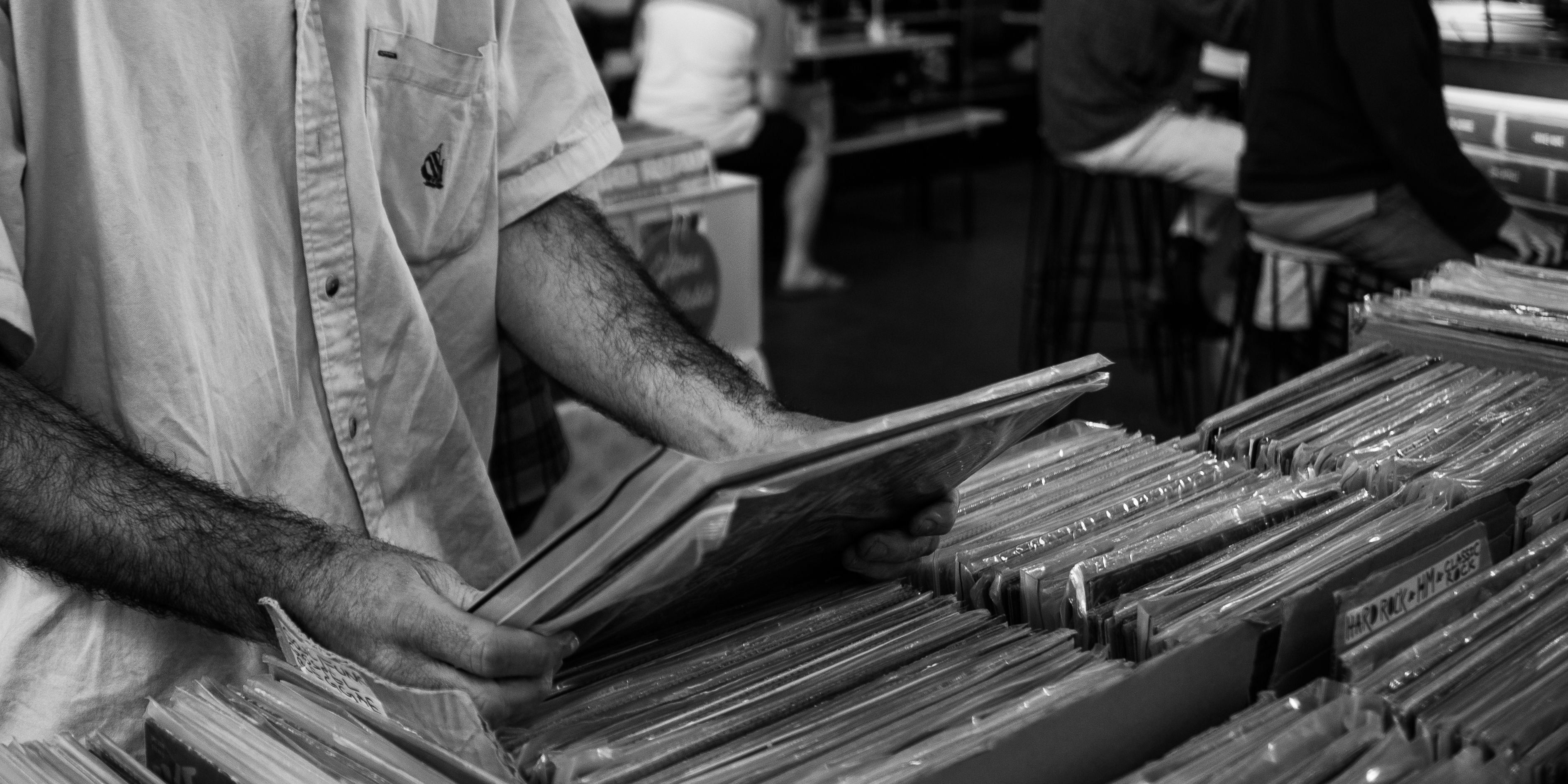
Vinyl records were first introduced in the 1900’s, and since then we’ve seen the emergence of many different music listening formats, most of which have been rendered extinct due to the onset of digital music and online streaming platforms.
Record sales also plummeted as the world progressed further into the digital era, and many record stores, including The Record Finder, struggled tremendously to keep their doors open. But LaHogue says their struggles are now paying off, with the last eight years showing a steady increase in sales, especially since the onset of COVID-19.
And it’s not just The Record Finder experiencing this revival, The Australian Recording Industry Association (ARIA) states 2021 had the largest amount of record sales in 15 years and was the third consecutive year of growth.
“COVID made people rediscover the things that meant something to them,” LaHogue says. “People couldn’t travel or socialise, so they began revaluating their lives and started investing in what made them feel good, things like books and music.”
A young man walks into the store, he smiles at LaHogue who gives a small nod of his head in return, and I assume he’s a regular customer.
LaHogue explains why I’m interviewing him, and the young man grins.
“There is just nothing better than a record playing on a record player,” he says.
LaHogue and I nod in unison as we watch him wander to the other side of the shop, and I decide there could be no better statement to wrap up this interview.
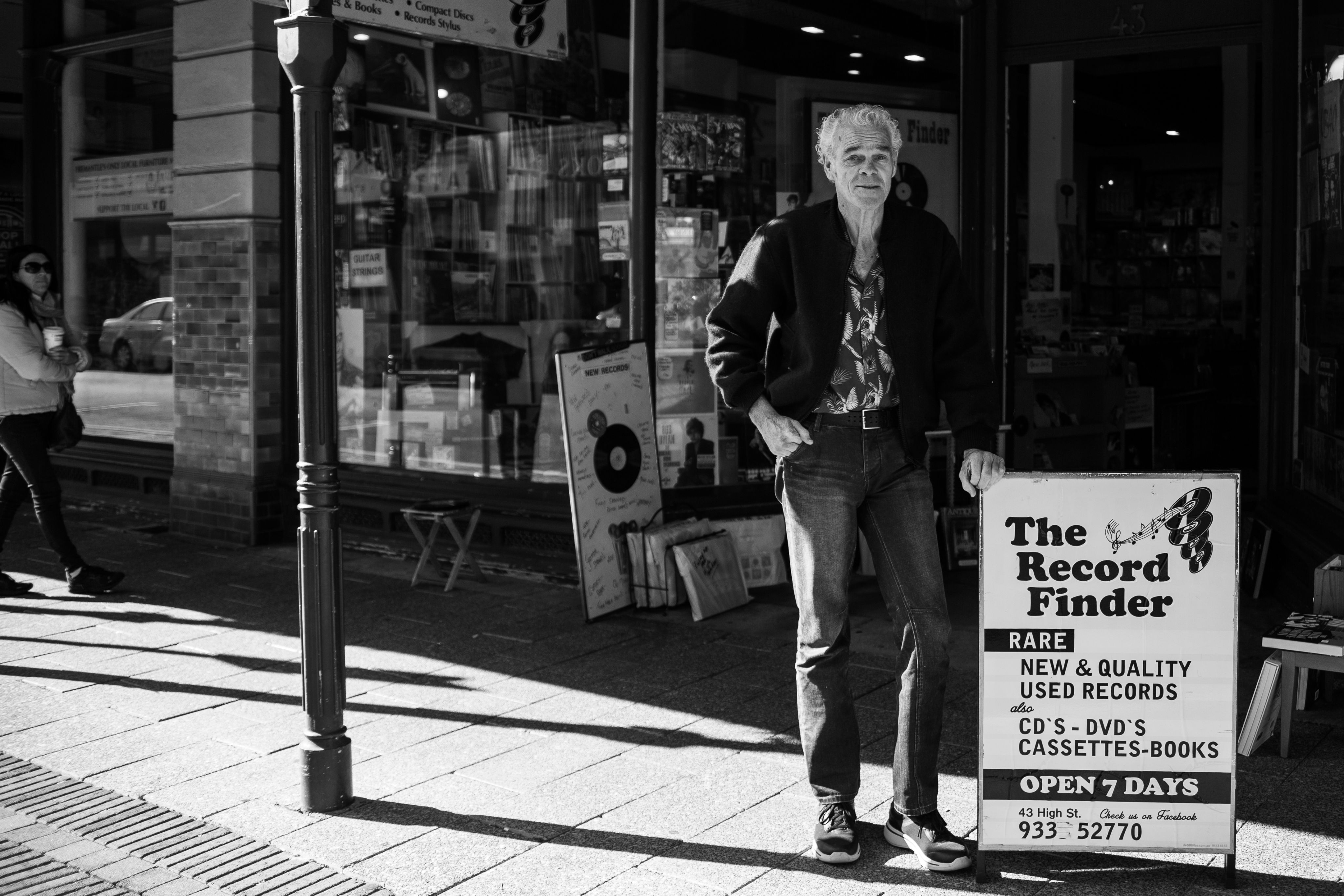
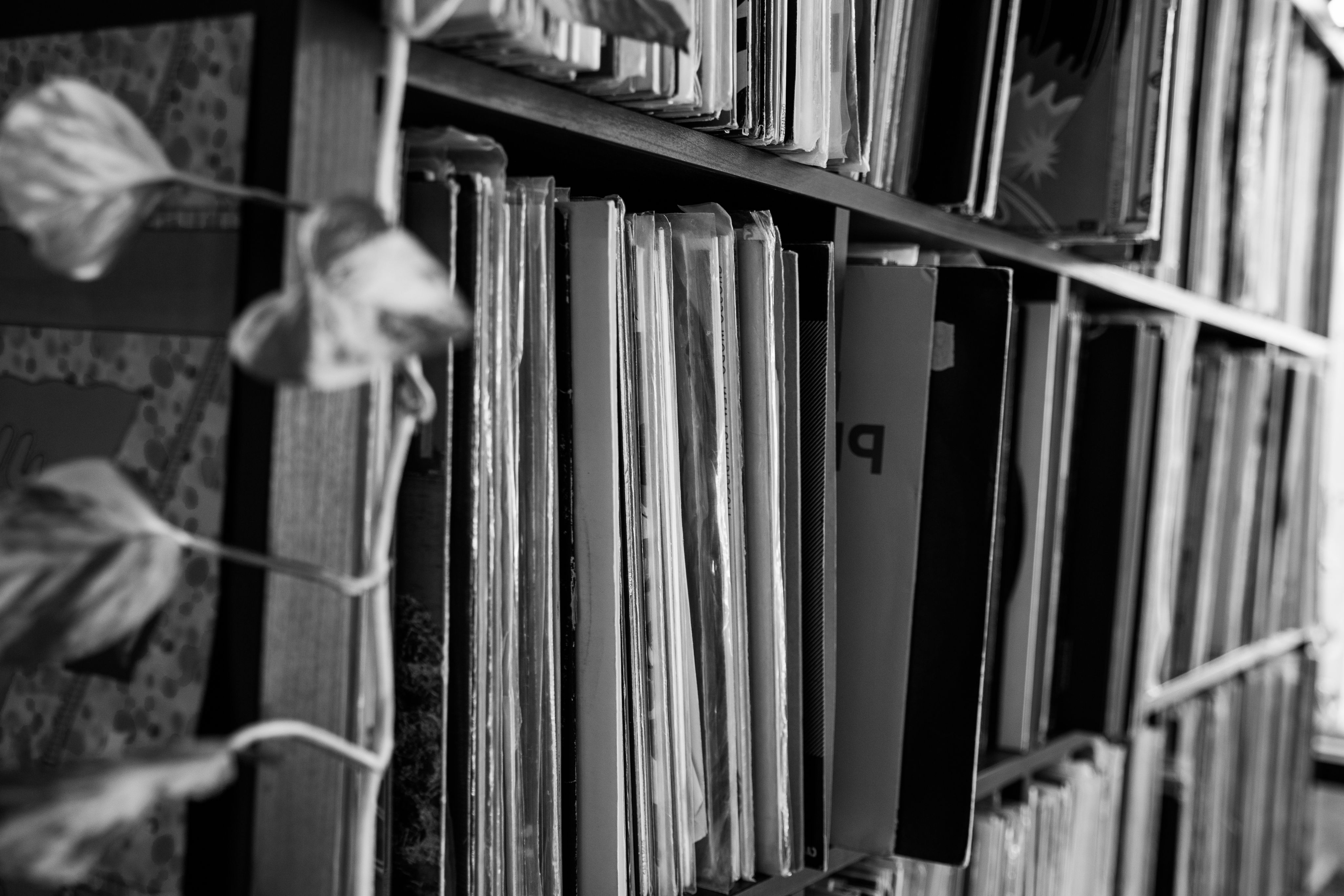
Josh Grainger is another very familiar face around Fremantle, identifiable by his funky dance moves, his signature bucket hat, or by the overflowing crates and bags of records he lugs from gig to gig.
Grainger is a vinyl collector and DJ, known and loved for his endless supply of funky disco tracks and consistently bustling dancefloors.
I sit on Grainger’s couch as he sorts through an overwhelming collection of 3000 records, he’s preparing for a gig at Clancy’s Fremantle tonight. He selects an album from the packed record shelves, briefly studies it before placing it on the turntable and lowering the needle, he listens, bopping his head in time to the song, it might be a couple seconds that pass or an entire side of the record before he nods with satisfaction, whips it off the turntable and tucks it away into a filling crate or records.
As he works, he explains that it hasn’t always been about records. He grew up in a musical family and his dad had a record player, but it was “kind of like a novelty”.
“I was always the CD guy at the party, I had my little backpack full of CDS,” he says smiling as he raises his hands to grasp the straps of an imaginary backpack at his shoulders.
“Then everyone got iPods and I became the AUX guy at the party.”
By 2010, Grainger had started experimenting with digital DJ decks, and by 2015 he had a fortnightly residency at El Grotto.
By this time, Grainger had begun buying and experimenting with records and was gradually incorporating vinyl into his sets. Eventually he moved to Fremantle where he became surrounded by opportunities to mix vinyl and was able to create his DJ brand ‘Ningaloo Records’.
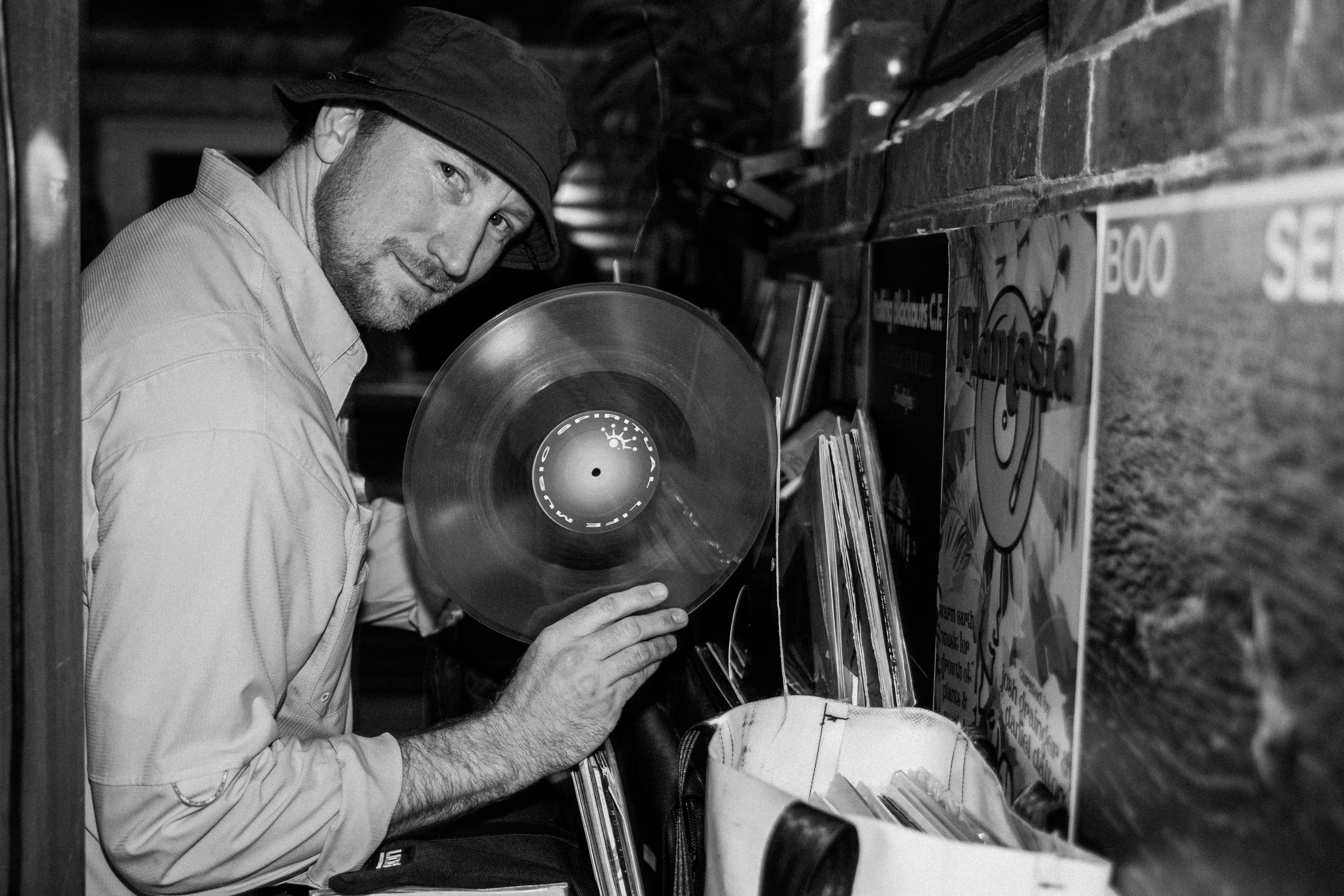
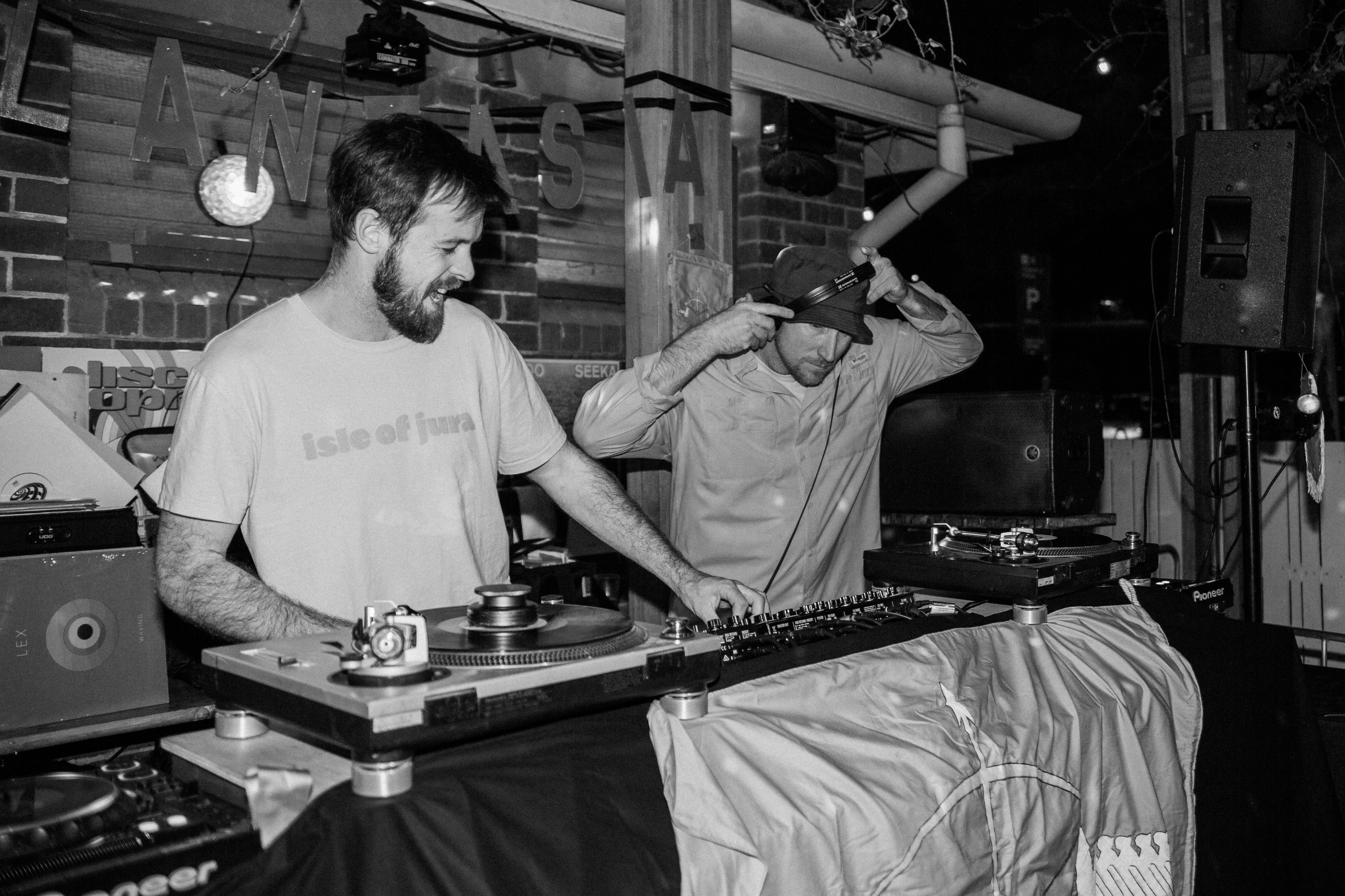
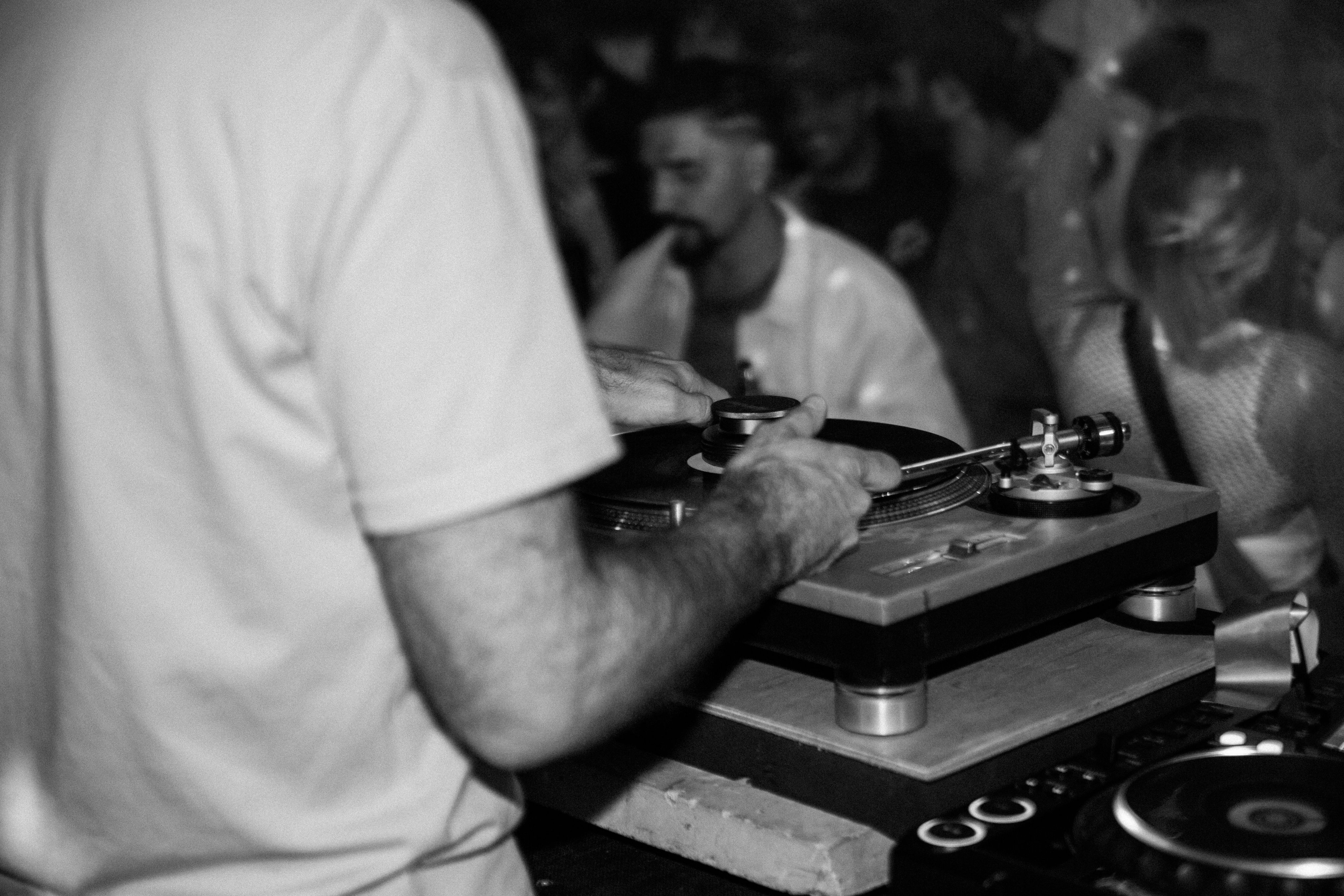
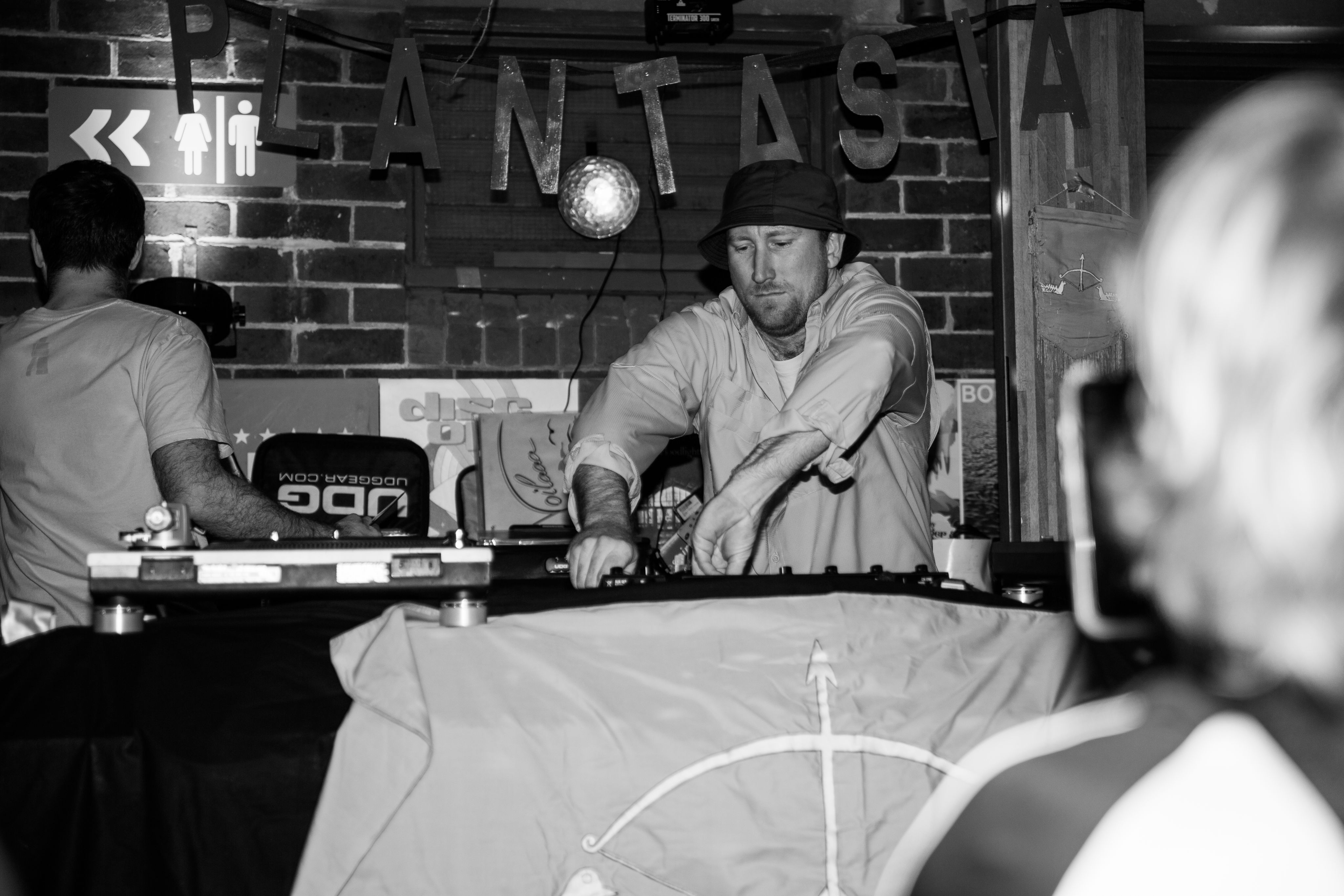
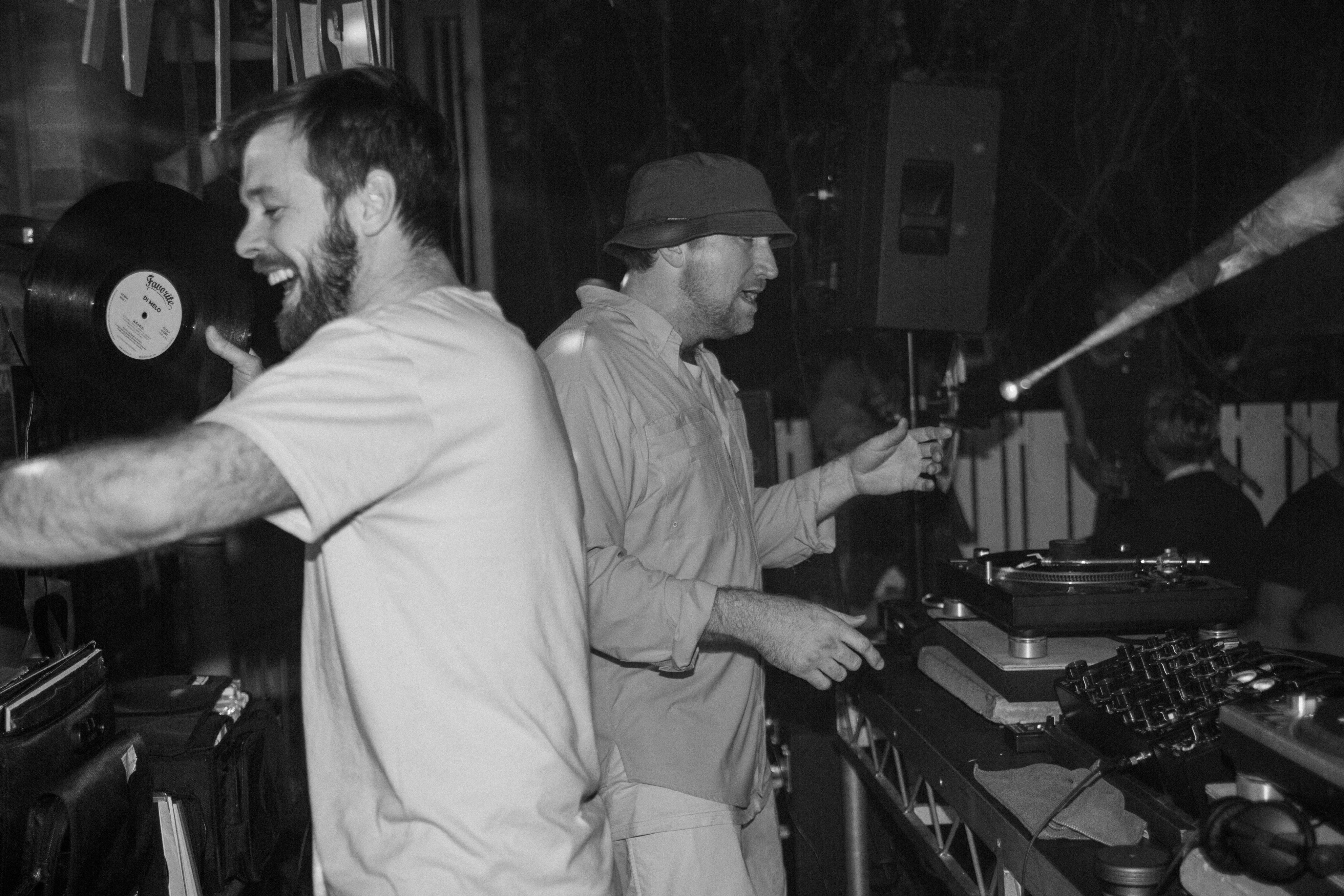
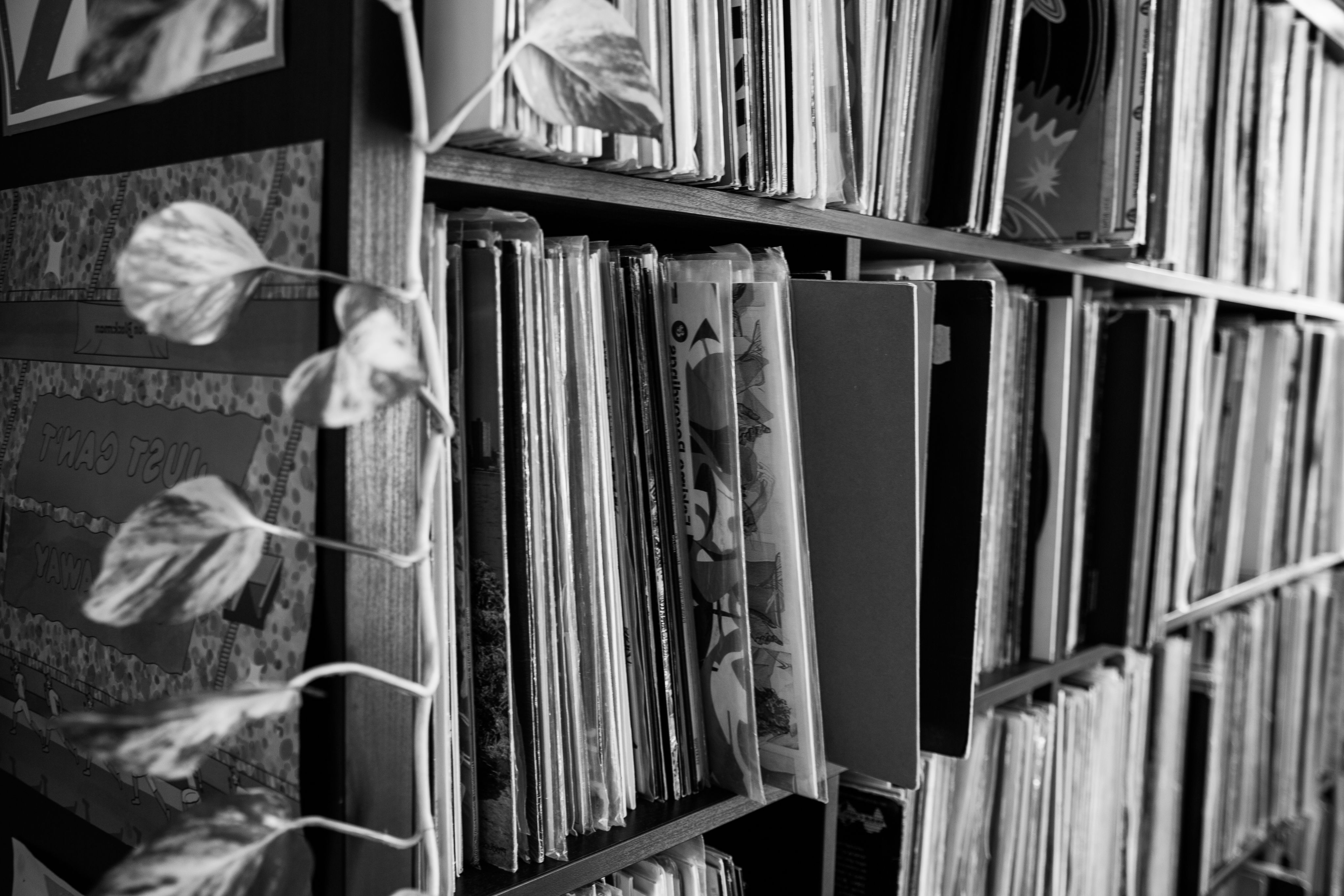





As we chat, Grainger continues to organise his records, he moves fluidly between the DJ table and his collection, his passion for the process evident through the delicate way he handles each album.
I am bewildered by the amount of time, effort and money that goes into being a vinyl DJ, and although I can appreciate the authenticity of the process, I find myself wondering how such a complex and niche profession can be justified.
“A lot of people don’t have the time for it, which I completely understand,” he says as he considers my question.
“It’s a lot more cumbersome and a lot more things can go wrong. But I just don’t think there is anything better than seeing a vinyl DJ.
“Every gig that I play, there is always someone that comes up to me completely gobsmacked. I see kids up the front with their heads over the table and you can see their brains just going ‘that’s what I want to do … that’s it!’... And that was me, however many years ago.”
Grainger explains that most vinyl lovers will say they prefer records because of the sound quality, but it’s not a sound thing for him, he prefers vinyl because of the challenge it offers.
“Digital mixing has become so much more accessible over the years,” he says.
“Don’t get me wrong, I think that’s a really good thing, but the increased accessibility takes away from the art. Vinyl mixing is a lot more demanding, it asks you every time ‘how bad do you want to be the DJ’. You need to know your albums inside out and you need to know exactly where you’re going, records are just so unforgiving.”
I ask Grainger what sort of future he sees for vinyl, and he tells me they have a “forever future”.
“Records have survived the worst of it, if they were going to go away, they would have already.
“Music became as accessible and as easy as possible, but then people started realising that there was nothing to look at, nothing to grab and read. I like to hold albums and admire them, look at the album art and read the album booklets. I love going to the record store every day and meeting people with the same interests.
"Vinyl creates a music community.”
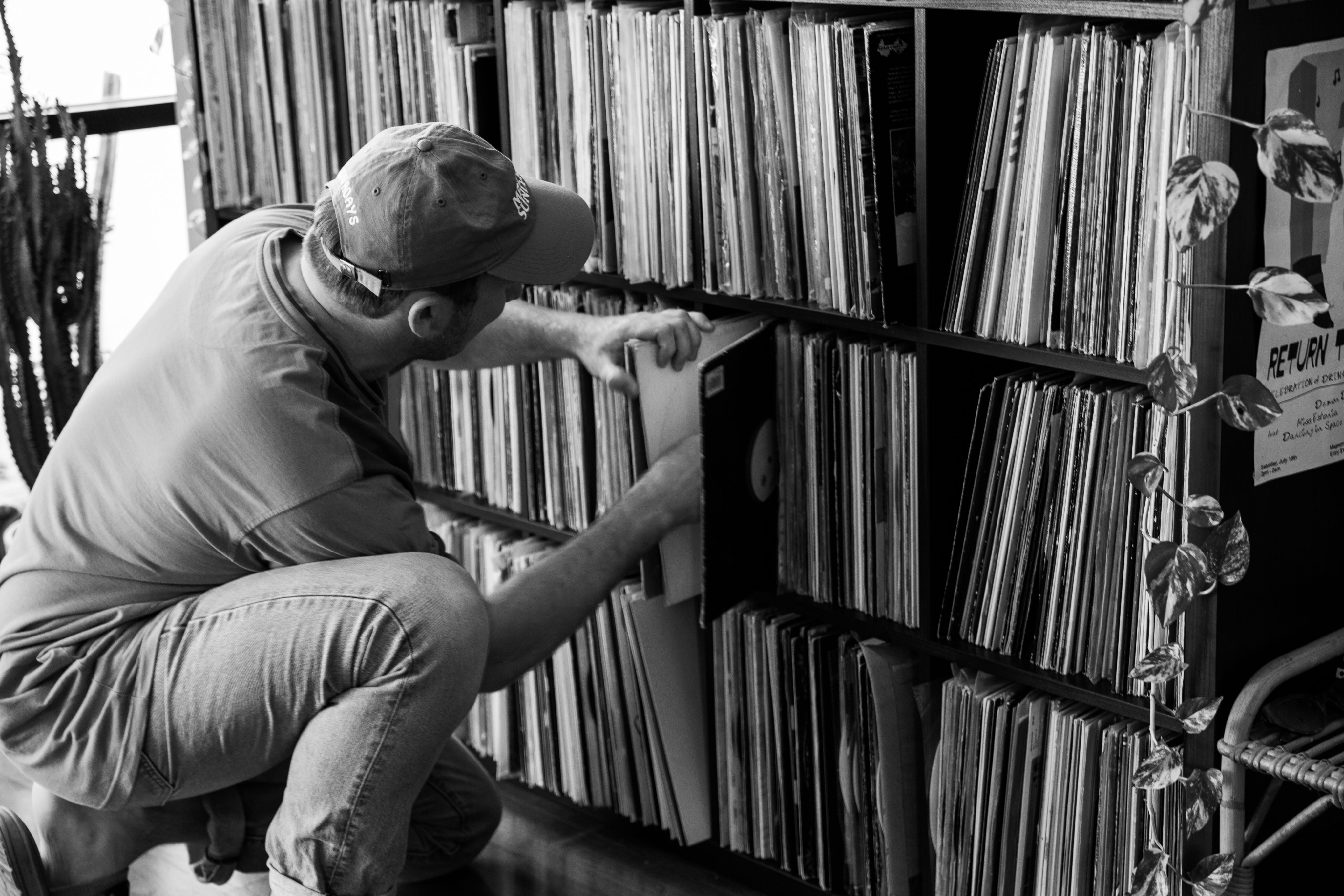
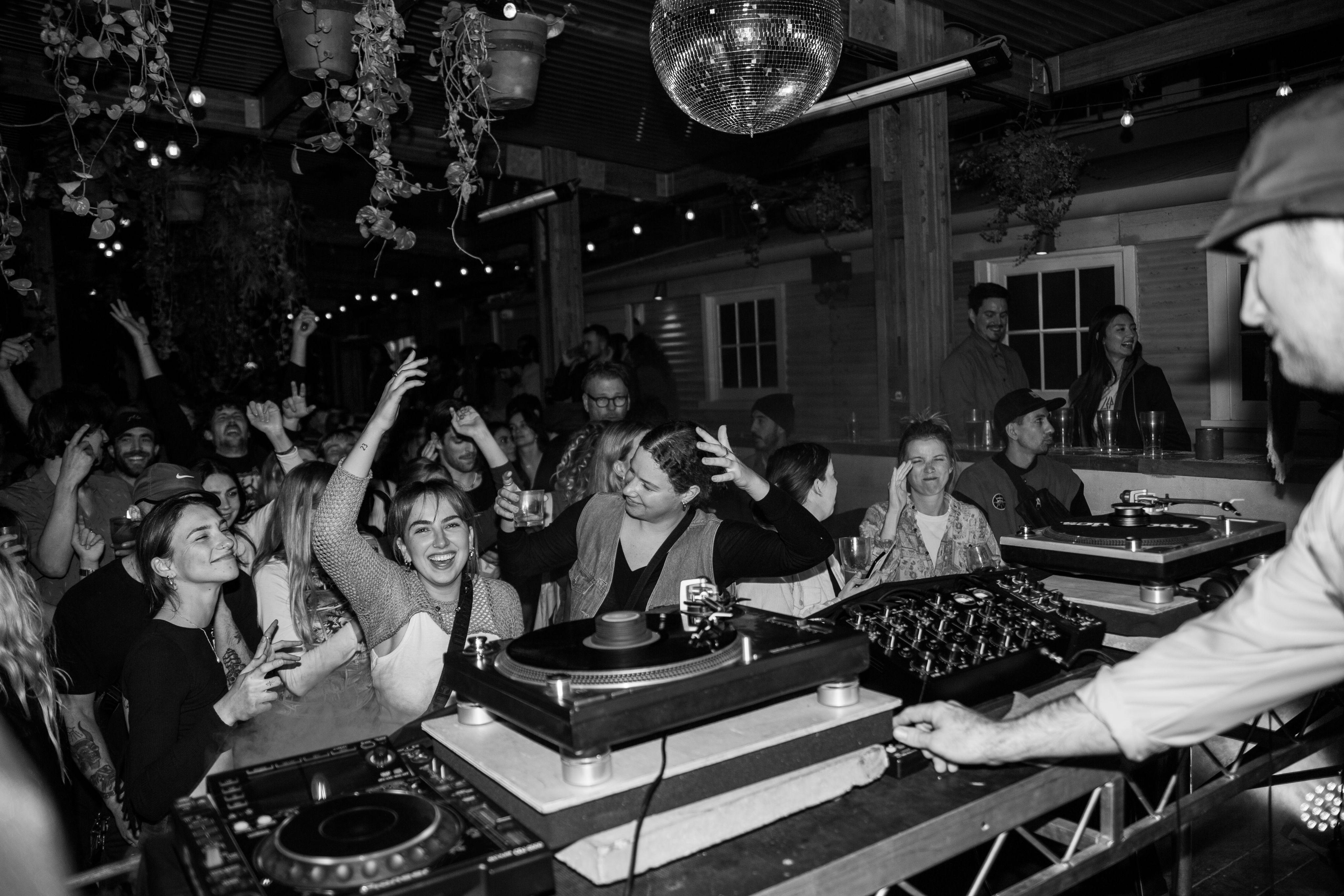
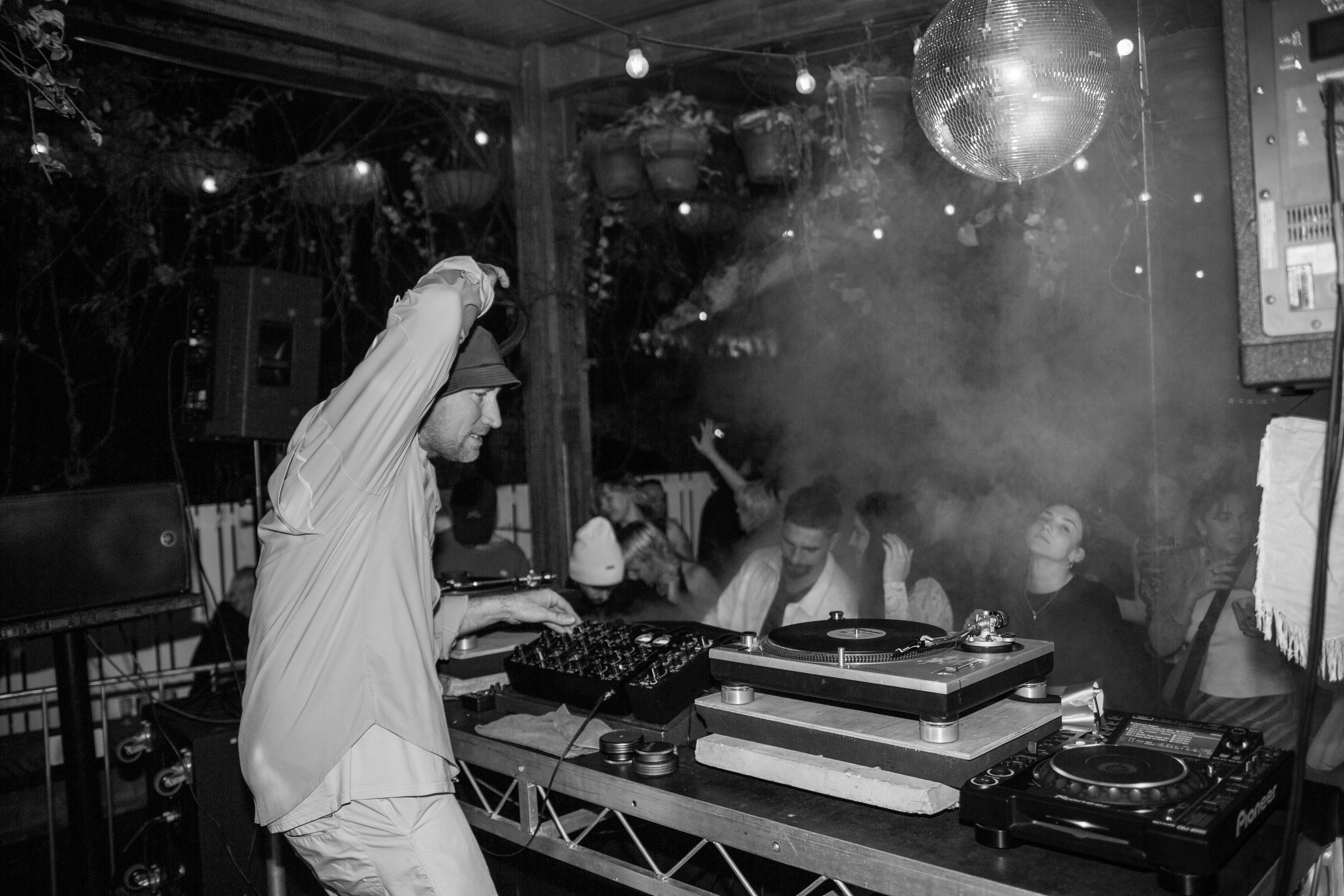
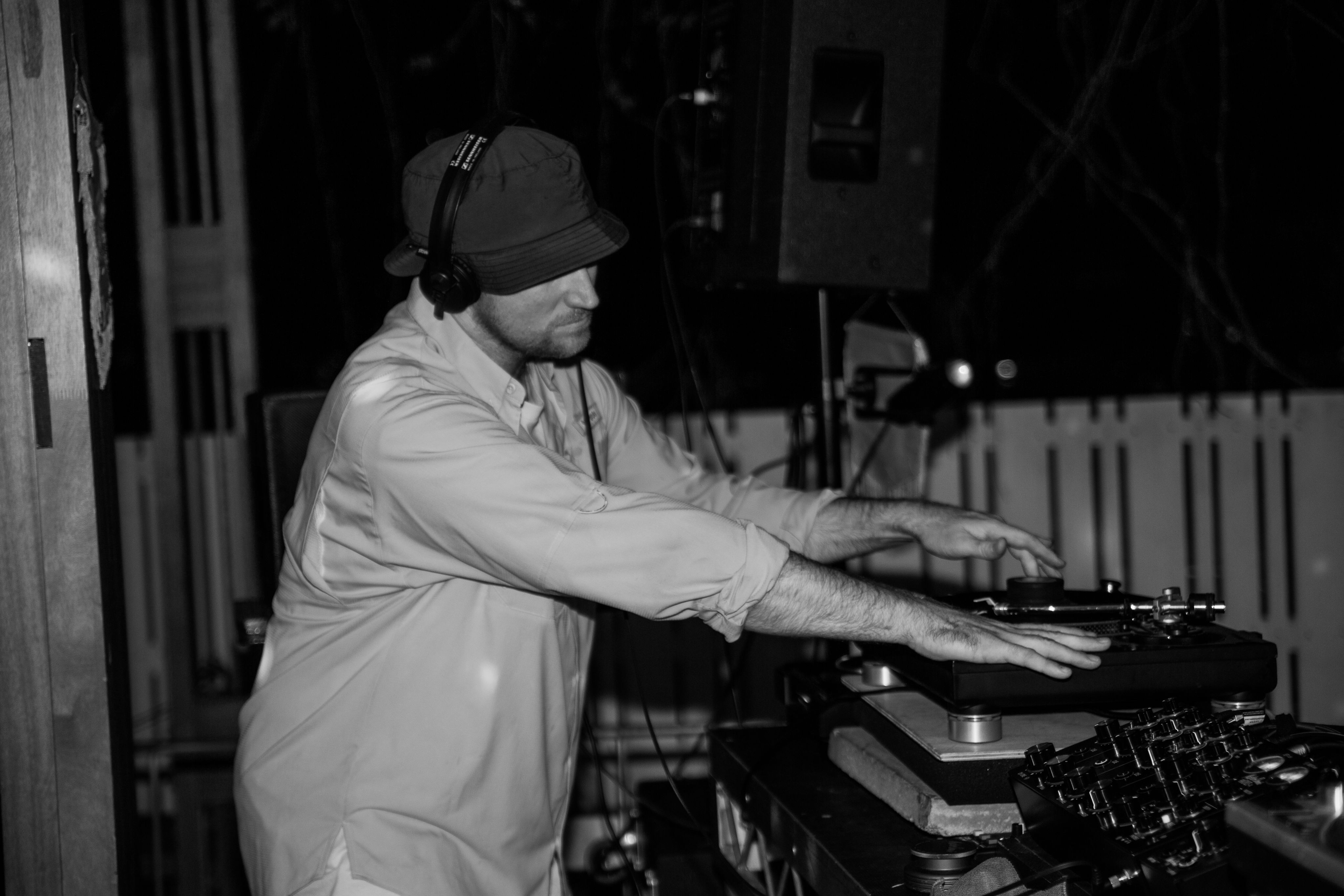
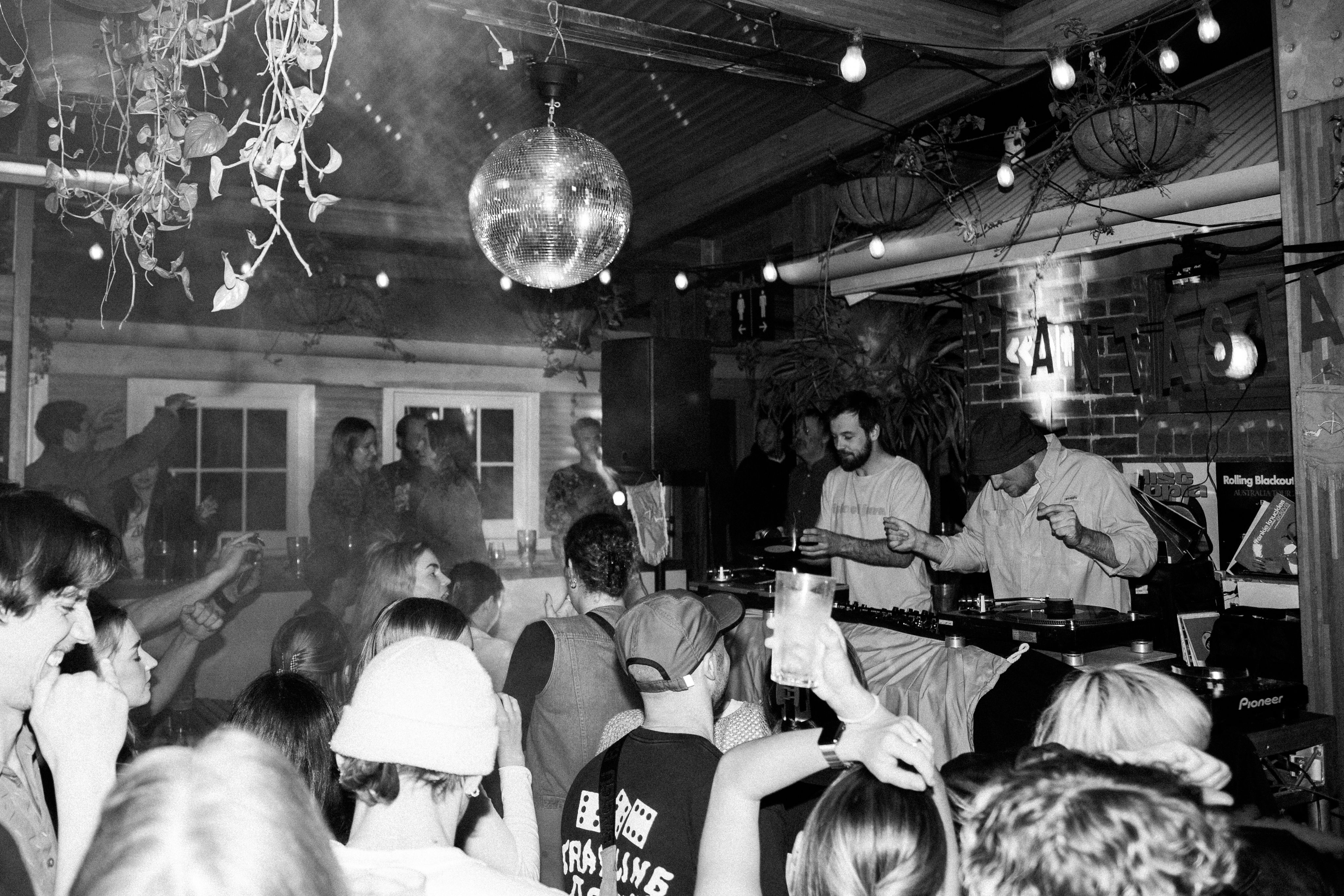



Bee Rizzi was never allowed to listen to the top 40, instead she was given a Walkman and Fleetwood Mac’s Rumours on CD. When she didn’t have her headphones in, she was listening to her family’s record collection; whether it be her dad’s rock albums, her mum’s disco albums or her nonna’s traditional Italian albums, the record player was always spinning.
“Everything sounds better on vinyl,” she says sitting across from me in her beautiful White Gum Valley home.
Her excitable sausage dog Penny barks impatiently at her from the floor and Rizzi gives her a quick ‘shhh’ before carrying on, “But that’s not why I love it, my passion for records comes from family nostalgia. It’s all connected to my family and my upbringing. I didn’t get Barbie Dolls and stuff; it was always music.”
A deep passion for vinyl was engrained into Rizzi from a very young age, and by the time she was 16, she was offered her first DJ gig at Mojos Fremantle.
“I started by my dad’s record pile,” she says lifting Penny up onto the couch beside her, “and then I slowly started collecting my own and gradually got more and more gigs.”
Rizzi was constantly surrounded by musicians and DJs to look up to and learn from, and she was told from the very start “if you’re gonna be a DJ Riz, you have to find your own style”.
Rizzi took that advice to heart, and it didn’t take long for her to establish herself as Perth’s very own Rock ‘n’ Roll vinyl DJ.
“I grew up as a bit of a tomboy and was definitely a bit rough around the edges,” she smiles and gives a small shrug.
“I believed I could do anything, and I knew I’d learn quickly. I also had the blessing of being a dancer, so I knew my beats really well. When I made mistakes, I would laugh them off rather than be a princess about them, and I think that’s how I got my following.”
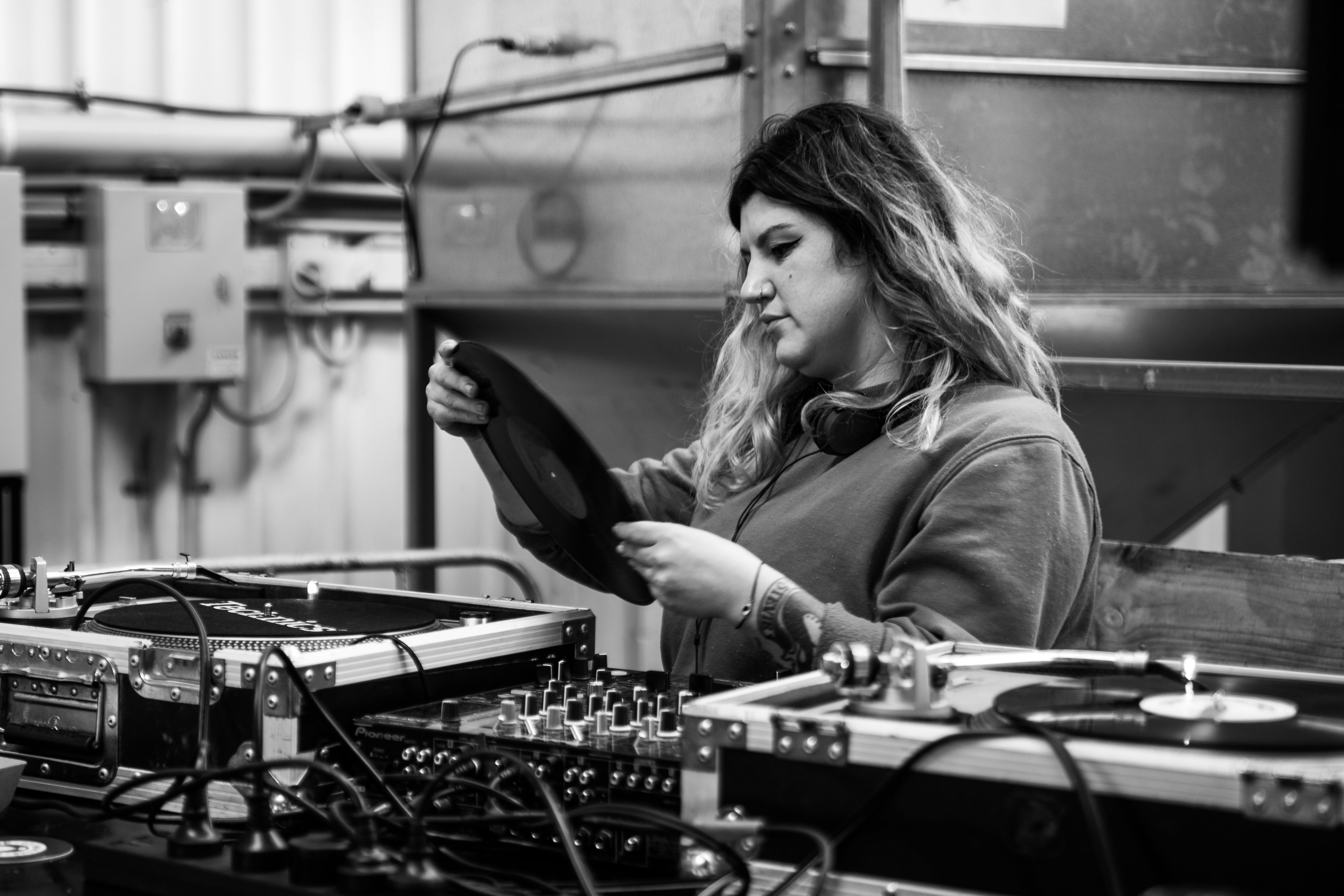
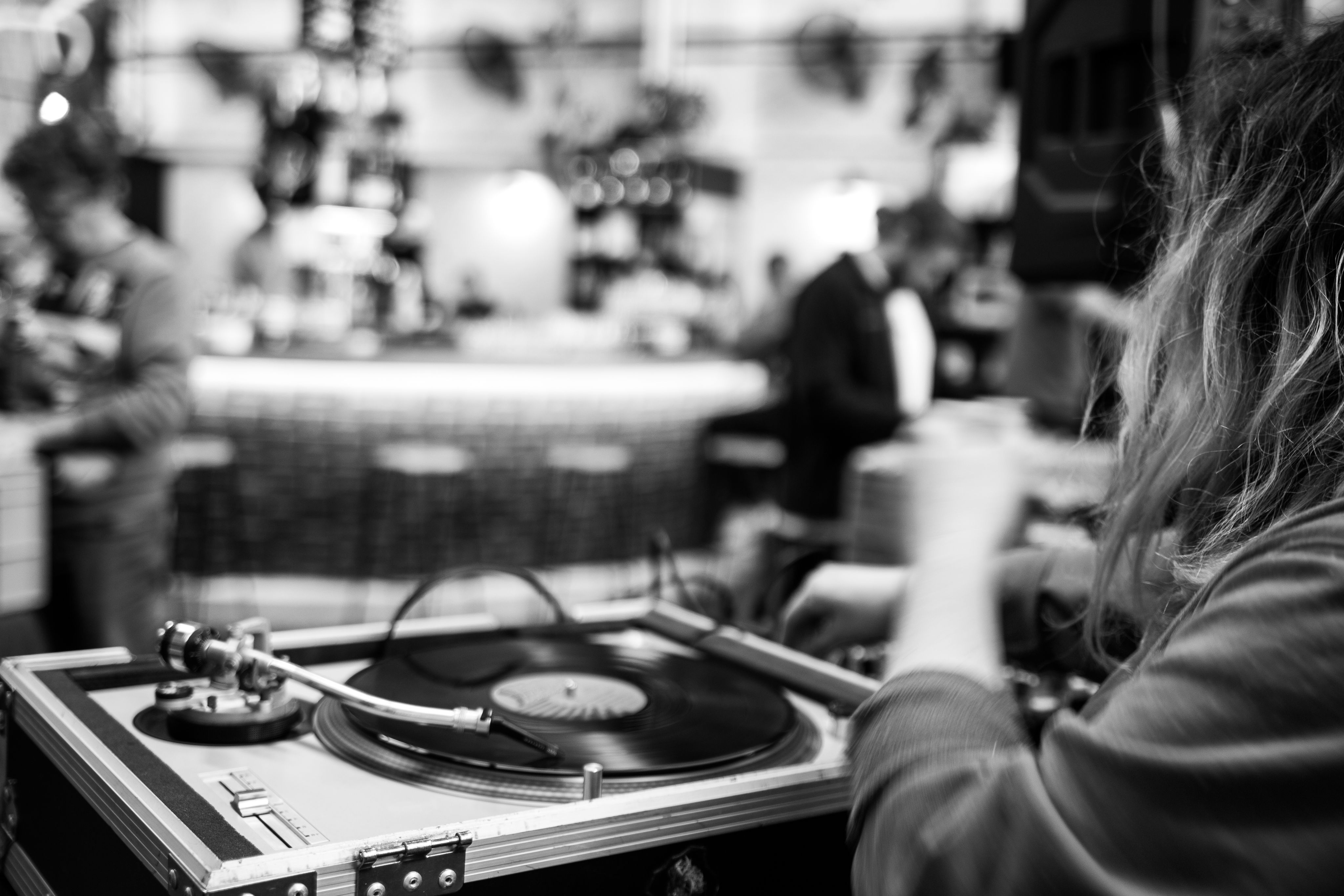
Rizzi agrees that vinyl is making a comeback. When she first started mixing vinyl, she would have at least one person every gig come up to her and say, “oh what the hell… you’re playing vinyl!”, and a lot of the time this would be followed by, “but you’re a chick!”.
And although people have become more accustomed to seeing a vinyl DJ behind the decks, the gender comments are still far too regular. I ask Rizzi to elaborate on this and she pauses to consider.
She explains that despite increasing female DJs, gig opportunities across genders is still far from equal.
“Females are always coming second in the music industry,” she says.
“As a female DJ, it’s really hard to know where you stand. Did I get the gig because they just needed a female to fill the gap between acts, or am I genuinely wanted because they love my music?” she pauses, “or am I just being an insecure princess?”
Rizzi scratches Penny on the belly and I let the silence drag out between us.
“I don’t want to become resentful of it, because vinyl is so special to me and is so connected to my family. But being a vinyl DJ is hard and being a female vinyl DJ is harder.”
This isn’t the first I’m hearing about unfair gender distribution across line-ups, and despite positive progress towards gender equality throughout the music industry, there is still a long way to go.
This was made evident by the Female:pressure FACTS 2022 survey, which shows the proportion of female acts in festivals has risen from 9.2% in 2012 to 26.9% in 2020-2021. Although we’re seeing improvement, that 17.7% increase still leaves females at just over one quarter of all acts in festivals.
“But in saying that,” Rizzi continues, “I’m so glad I’ve stuck with it over the years, and I hope I might inspire people, especially females, to pick it up as a hobby.”
I smile and nod, feeling rather inspired myself.
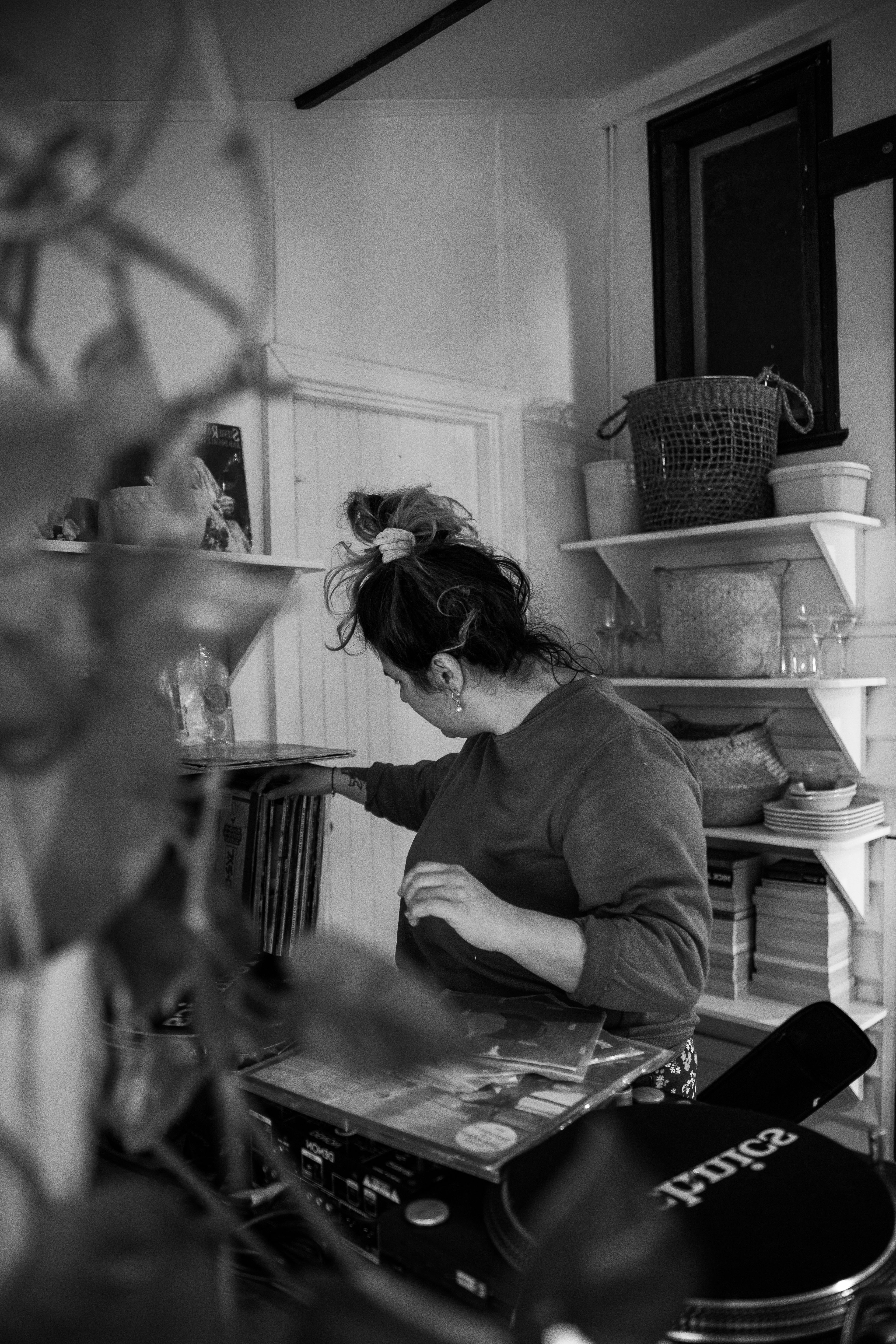
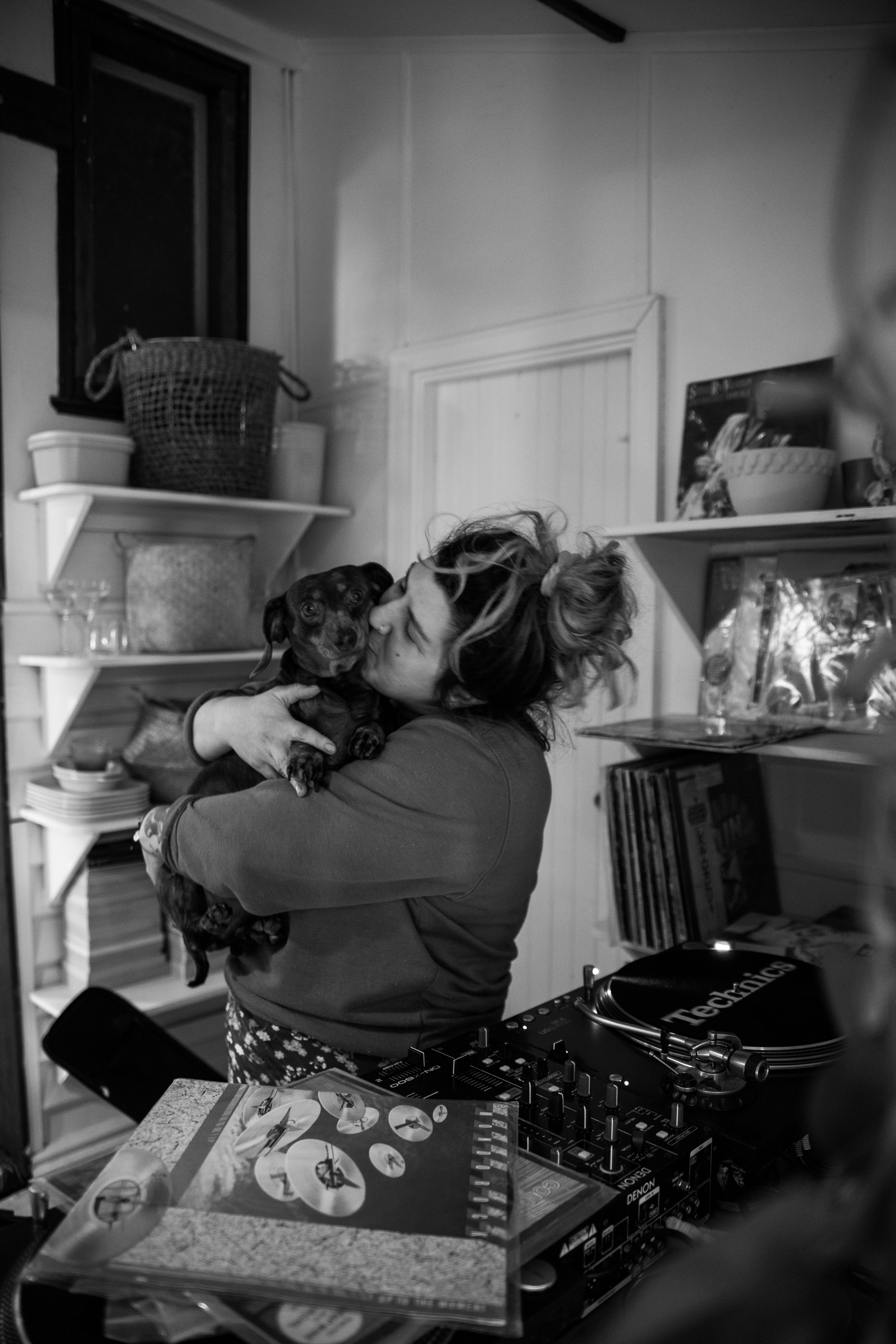
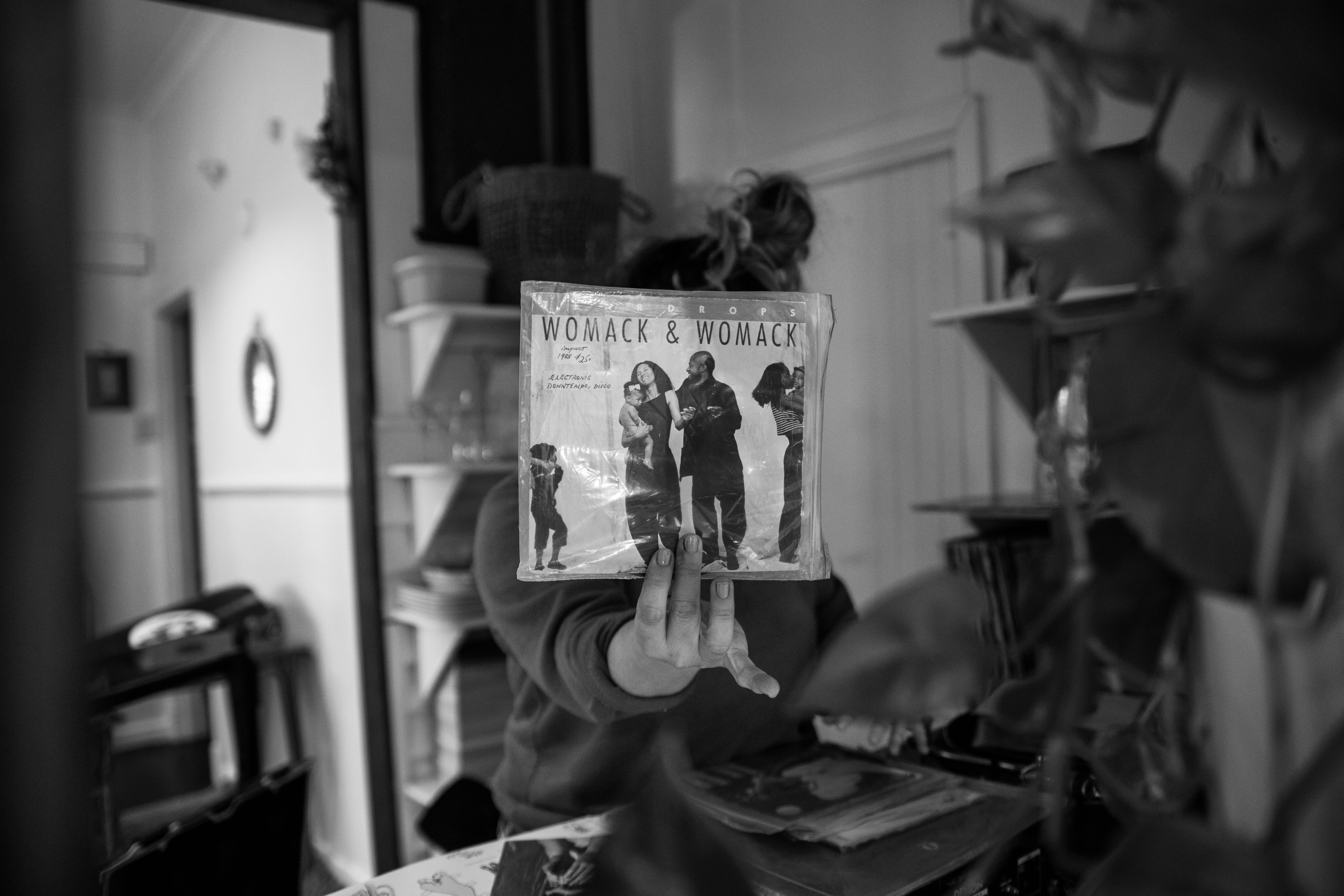
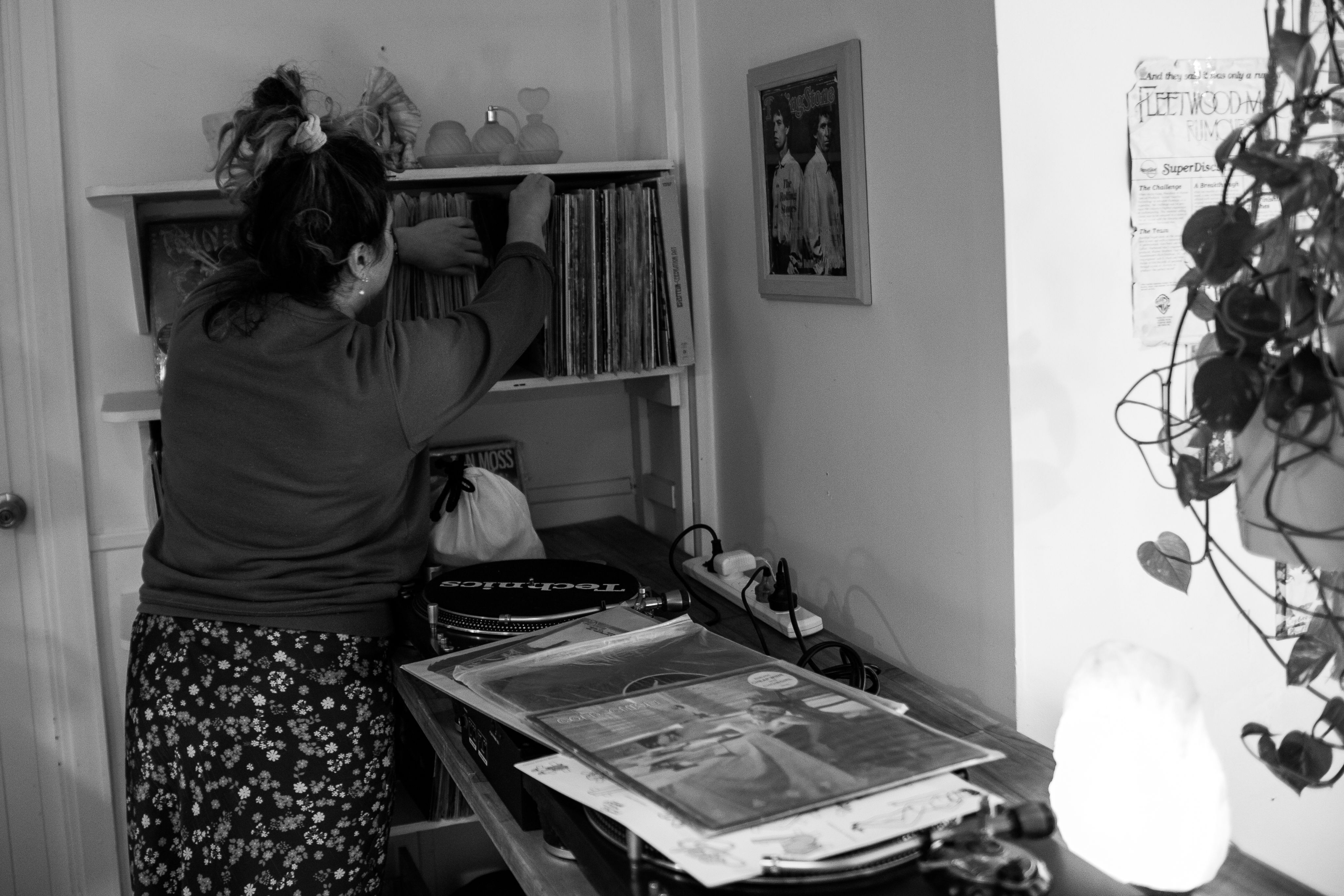
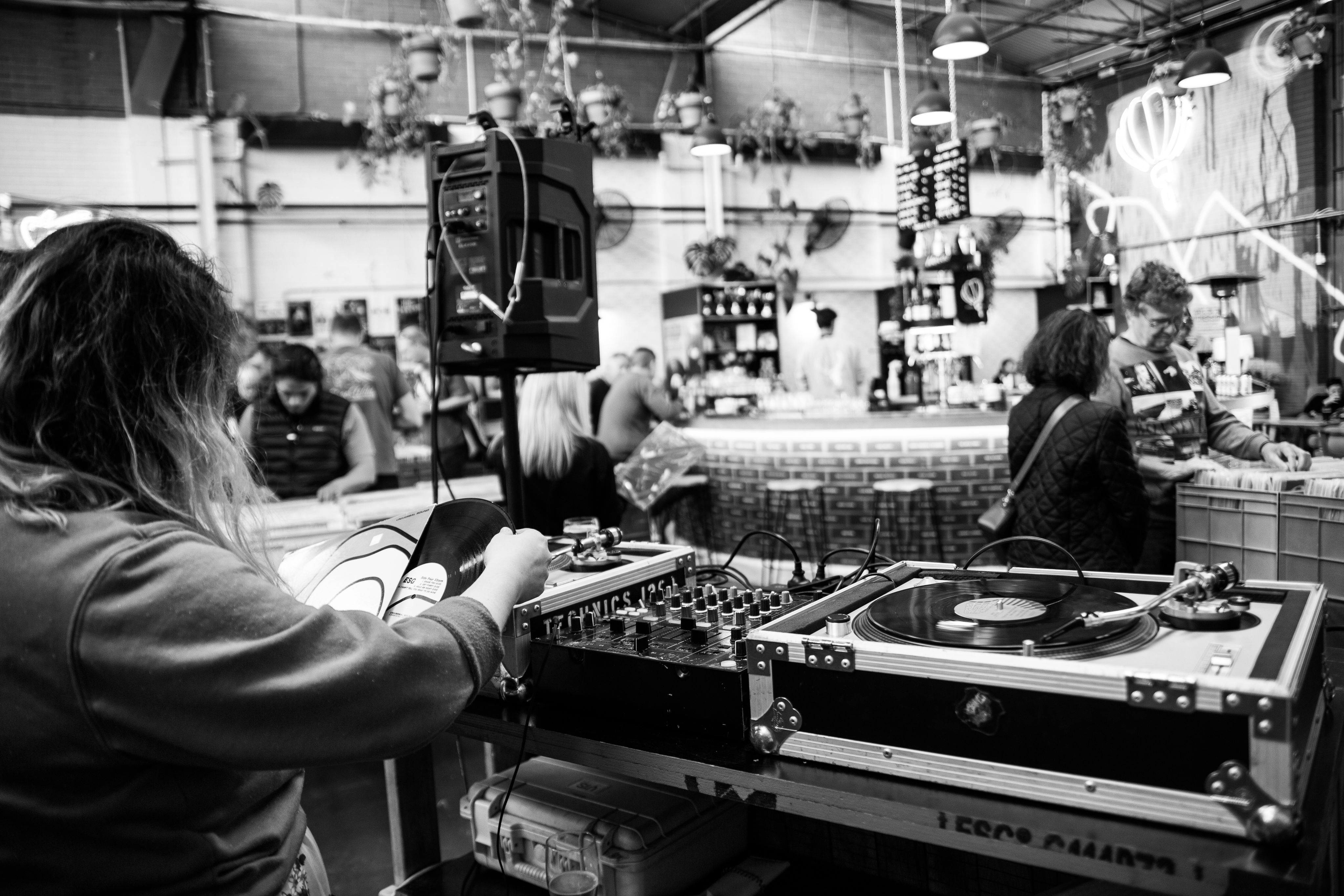



Nothing about vinyl is convenient; they are expensive, fragile, a pain to transport and difficult to mix.
But I’ve come to realise that this is what makes it so special, because nobody could have the time, the patience and the determination, without also having a truly genuine passion for music.
Record collecting is a beautifully authentic process that has been passed down between families and generations for years.
It had its chance to die out, and for a time it really looked like it might, but vinyl records are the respected veterans of the music world, and it looks like they're here to stay.
